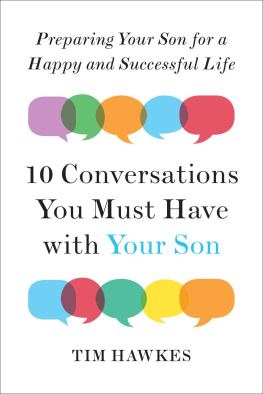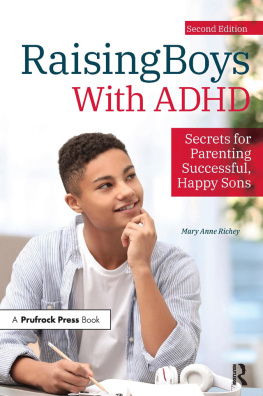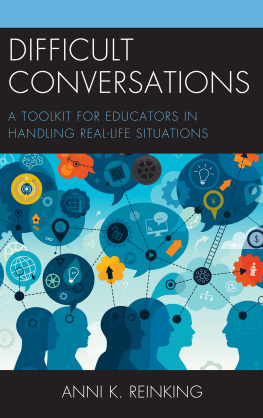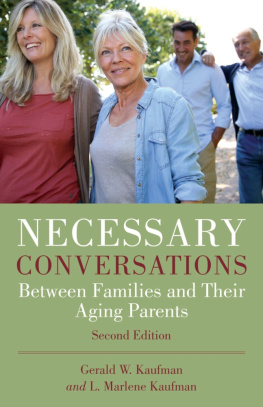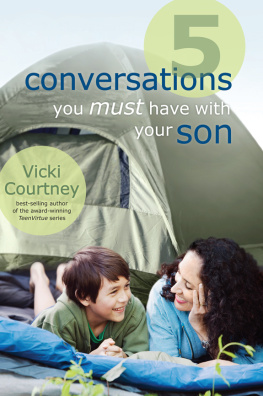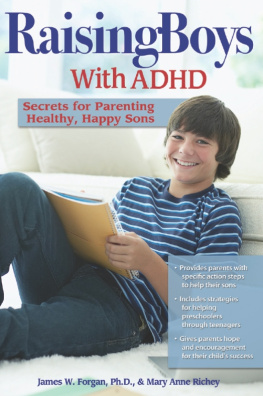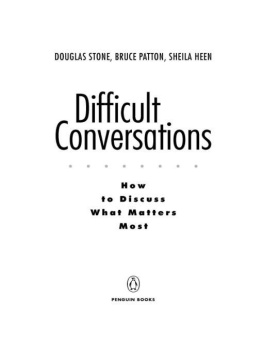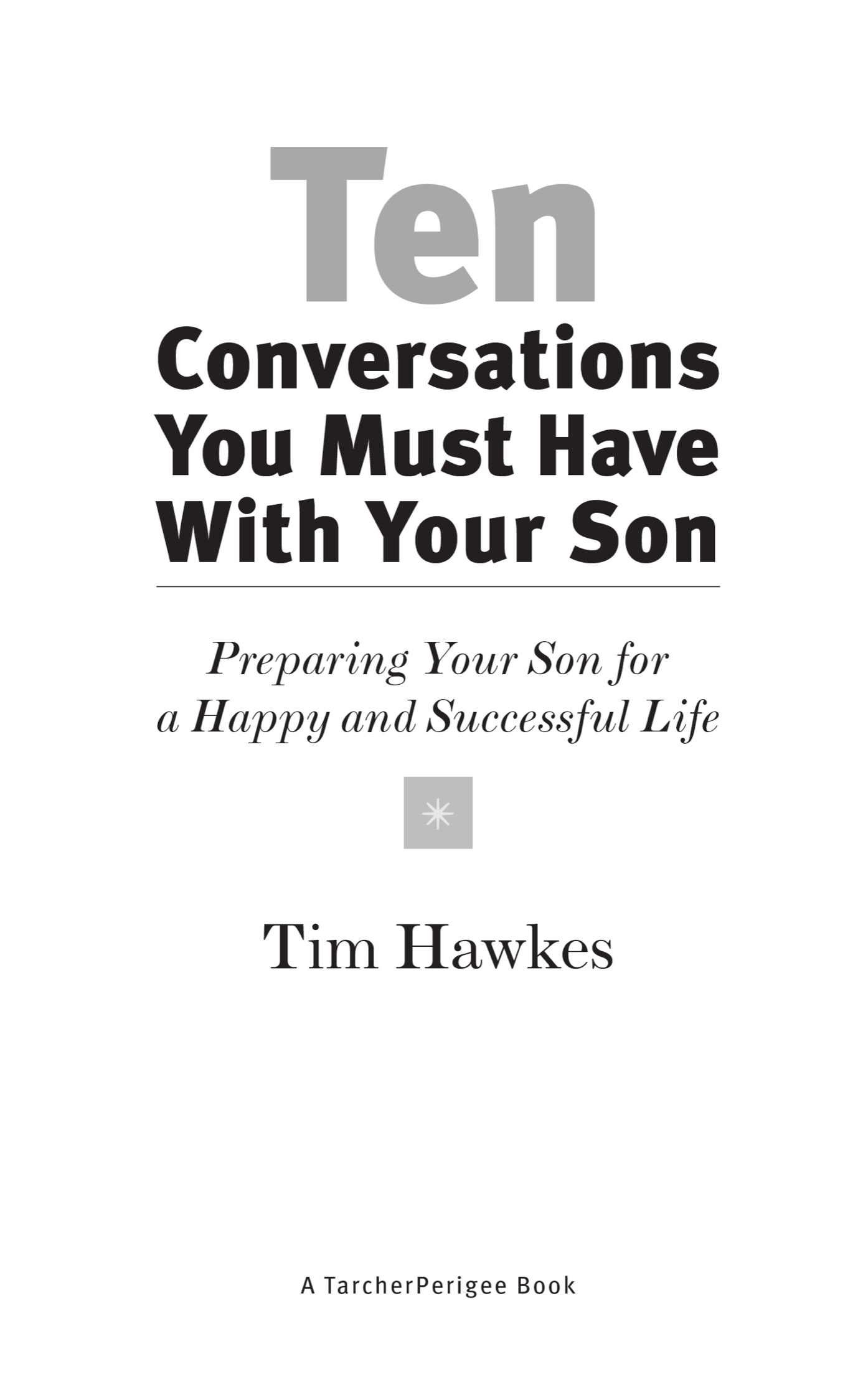
An imprint of Penguin Random House LLC
375 Hudson Street
New York, New York 10014
First published in Australia and New Zealand by Hachette Australia Pty Ltd, 2014
First published in the United States of America by TarcherPerigee 2016
Copyright 2014 by Hachette Australia
Penguin supports copyright. Copyright fuels creativity, encourages diverse voices, promotes free speech, and creates a vibrant culture. Thank you for buying an authorized edition of this book and for complying with copyright laws by not reproducing, scanning, or distributing any part of it in any form without permission. You are supporting writers and allowing Penguin to continue to publish books for every reader.
Extracts from Dr. Tim Hawkess book Boy Oh Boy: How to Raise and Educate Boys have been reproduced with permission of Pearson Education.
Extracts from Nigel Lattas article Confessions of a Bad Parent in the New Zealand Listener have been reproduced with permission of APN News & Media.
Extracts from Steve Biddulphs chapter How Girlhood Was Trashed and What We Can Do to Get It Back, in Melinda Tankard Reist (ed), Getting Real: Challenging the Sexualisation of Girls have been reproduced with permission of Spinifex Press.
Tarcher and Perigee are registered trademarks, and the colophon is a trademark of Penguin Random House LLC.
Most TarcherPerigee books are available at special quantity discounts for bulk purchase for sales promotions, premiums, fund-raising, and educational needs. Special books or book excerpts also can be created to fit specific needs. For details, write: SpecialMarkets@penguinrandomhouse.com.
eBook ISBN 9781101992258
Neither the publisher nor the author is engaged in rendering professional advice or services to the individual reader. The ideas, procedures, and suggestions contained in this book are not intended as a substitute for consulting with your physician. All matters regarding your health require medical supervision. Neither the author nor the publisher shall be liable or responsible for any loss or damage allegedly arising from any information or suggestion in this book.
While the author has made every effort to provide accurate telephone numbers, Internet addresses, and other contact information at the time of publication, neither the publisher nor the author assumes any responsibility for errors or for changes that occur after publication. Further, the publisher does not have any control over and does not assume any responsibility for author or third-party Web sites or their content.
Cover Design: Jennifer Carrow
Cover Images: Alex Belomlinsky / Getty Images
Version_1
This book is dedicated to my son, Peter, and his son, William
Contents
Introduction
M Y MOTI VE FOR WRITING this book was a growing concern that too many boys seem starved of essential knowledge; the sort of knowledge that can only come from good conversations about good things with good people. The assurance of love, the teaching of life skills, the sharing of wisdom seemed not to happen in the lives of many of the boys I came across as an educator. Small wonder. In an age characterized by frantic pace, incessant obligation and multiple diversions, meaningful conversation between sons and parents is now being measured in seconds a day rather than in minutes.
Making time to talk with a son is one thing; knowing what to talk about is another. In this, parents need not feel discouraged, because each has a compendium of experience that should not be underestimated. Having acknowledged this, teaching a son the skills to enable him to cope with lifes many challenges is not always easy. Intergenerational differences and a natural dislike by the younger of advice given by the older means that some ingenuity is needed. This book explores how to share with a son as well as what to share.
Many people are talking to our sons, but are they the right people and are they giving the right advice? In this book, you will learn what to say to your son about specific matters such as sex, money, health and goals, as well as how to deal with broader, more difficult issues such as character and death. These matters cannot be left to chance. There is a curriculum of life skills, knowledge and wisdom that needs to be passed from one generation to another, and Ten Conversations You Must Have With Your Son was written to help with this mission.
My credentials in writing this book are not found in the headship of schools or the authoring of books. They come from being a father whose failure has filled these pages with painful lessons. I have also had the pleasure of witnessing inspirational parenting by others and have listened to conversations that have stimulated and transformed a boy. These stories I share, as I do ancient wisdom and modern thinking on what must be said to our sons.
Tim Hawkes
Why?
T O SUGGEST THE SORTS OF CONVERS ATIONS a parent should have with their son is not much short of arrogant. Each son, each parent and each family is unique in what it is they need to talk about, so providing a formulaic list of required conversation is as presumptuous as it is unhelpful.
Then there is the matter of the number of conversations. Tenyou must be joking! You should be having thousands, even tens of thousands of conversations with your son, with each discourse delicately nuanced so that it is uniquely relevant to the situation.
The only plea I can enter to both of these charges is: guilty.
However, I maintain my direction and purpose. Why? Because of a wearying amount of evidence that too many of our sons are starting adulthood with insufficient mentoring. An unacceptable number appear to be unable to cope well with their growing independence. Some progress through the decades after childhood in a state of perpetual adolescence, unwilling to commit, unwilling to assume responsibility and unwilling to grow up. Addicted to the trivial, preoccupied with pleasure and suffering domestic dyslexia, several are making a mess of their relationships and a mess of their lives.
In nearly a quarter of a century as a headmaster, I have seen too many parents frustrated by their inability to connect with their sons, and too many sons hobbled by a lack of communication with their parents. The generation gap has long been recognized as the culprit in preventing good conversation. Many parents are not always comfortable communicating with their teenage twitterati using contemporary means. It is not just because they have no idea what lol means. It is because they have limited opportunity to talk and such opportunity they do have is often rushed and inadequate. Playgroups, preschools and primary schools steal their children away from them. Then televisions, computer games and social-networking sites abduct their offspring. Thereafter, the parent must line up behind the secondary school teacher, football coach, best friend and girlfriend to speak to their son.
The information blackout between generations is not assisted by the growth of independent living in the home. Some parents escape the noisy chatter of offspring by bunkering down in a parents retreat, shutting themselves in a study or hiding behind a newspaper. Many sons are no better. They protect themselves from the verbal intrusion of their parents by ensuring their bedroom is equipped with enough electronic self-sufficiency to free them from the obligation to speak to anyone except the cat.

